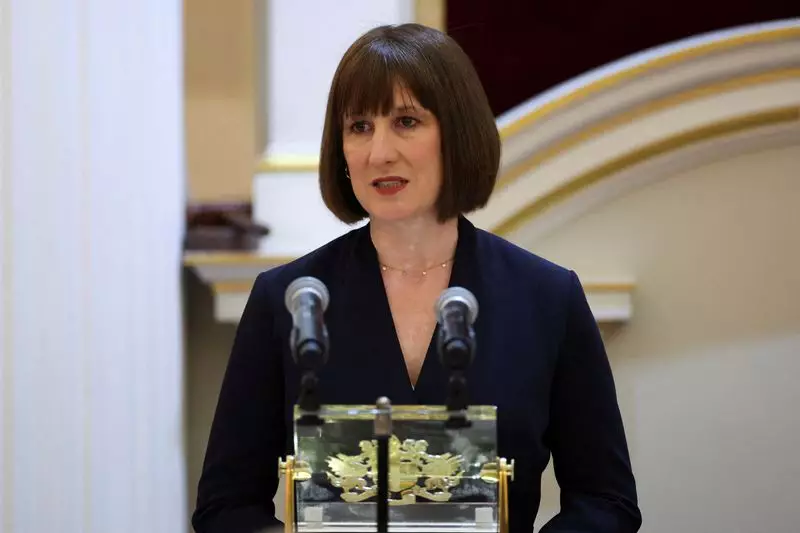The economic landscape of the United Kingdom has transformed into a battleground marked by soaring borrowing costs, currency depreciation, and the pervasive shadow of global economic factors. As Prime Minister Keir Starmer and Chancellor Rachel Reeves grapple with these formidable challenges, their responses and strategies will not only determine their political survival but will also significantly impact the nation’s financial health.
Market Pressures and Economic Instability
In recent weeks, UK financial markets have experienced disarray, with 30-year gilt yields rising to post-1998 highs and the value of the pound plunging to its lowest since November 2023. This turmoil has incited fears that the current market conditions might signal the commencement of an economic crisis for the Labour government, which has been at the helm since its electoral victory in July. Starmer openly acknowledged the administration’s commitment to rectify the budget, reinforcing the notion of a “ruthless” approach in fiscal management. However, the fundamental economic factors at play are often beyond local governance.
The impact of the United States’ economic climate, particularly under President Donald Trump, looms large over the UK. Trump’s potential implementation of further tariffs could precipitate inflationary pressures that ripple across the Atlantic, influencing UK market stability. Investors are meticulously monitoring the Federal Reserve’s interest rate decisions, which, in turn, disproportionately affect British bonds. The intricate interplay between US and UK fiscal environments underscores the severity of the situation, revealing a landscape marked by external vulnerabilities.
Chancellor Reeves is competent in her economic foresight; however, the options available to her appear increasingly restricted as the stakes rise. During her recent trip to China, she reiterated her commitment to maintaining fiscal stability, asserting her non-negotiable targets for public finances despite rapidly changing market tides. The promise of future spending cuts has sparked trepidation within the governing Labour Party, whose members and constituents are likely to react adversely to any further austerity measures.
Reeves’ prior budgetary adjustments, including increased social security contributions, have already spurred unwelcome consequences such as reduced corporate hiring. Analysts stress that the balancing act between stimulating economic growth and adhering to strict fiscal standards is fraught with difficulty. With the upcoming two-year Spending Review set for June, the government faces immense pressure to make impactful decisions, albeit the impacts of announced measures may not manifest until well into the next decade.
The Influence of Foreign Investment and Economic Sentiments
The UK’s reliance on foreign investment to sustain its economy, a concern previously articulated by former Bank of England Governor Mark Carney, remains significant. Yet the influx of foreign ownership in British gilts has not translated into stable market conditions; rather, it has compounded volatility. Deutsche Bank’s chief UK economist, Sanjay Raja, asserts that the declining participation of domestic pension and insurance funds in government debt sales has shifted the burden to foreign hedge funds, leading to unpredictable fluctuations in market behavior.
This growing foreign influence on UK debt signifies a seismic shift that could edge the economy toward instability. As foreign hedge funds become more prominent in the gilt market, it raises questions about the capacity of the UK to manage its large current account deficit. These dynamics compel the government to navigate not only domestic pressures but the complexities of a financial landscape shaped by global market forces.
As Reeves looks ahead to her next full budget presentation later in the year, the uncertainty surrounding the global economy poses significant challenges. The expectations around US inflation and interest rates could drastically alter the fiscal landscape, influencing Reeves’ capacity to execute her economic strategy effectively. While insight suggests a potential respite in rate cuts from the Bank of England in 2025, the prevailing anxieties regarding inflation and wage contracts present formidable hurdles.
In the midst of these swirling uncertainties, economic growth emerges as the primary objective for the UK government, as acknowledged by experts such as Hetal Mehta from St. James’s Place. This long-term ambition underscores a crucial decision-making process for Reeves and her team as they strive to foster a climate conducive to economic revival while managing public expectations during a period characterized by fiscal restraint.
The economic conundrum faced by the UK government illustrates the precariousness of contemporary governance in globalized markets. As Prime Minister Starmer and Chancellor Reeves seek to instill confidence amidst rising chaos, they must contend with a series of intertwined issues: domestic fiscal policies, shifting global economic trends, and the underlying vulnerabilities of reliance on foreign investment. Striking a balance between urgent reforms and sustainable growth strategies will be paramount in navigating the UK through these turbulent waters.

